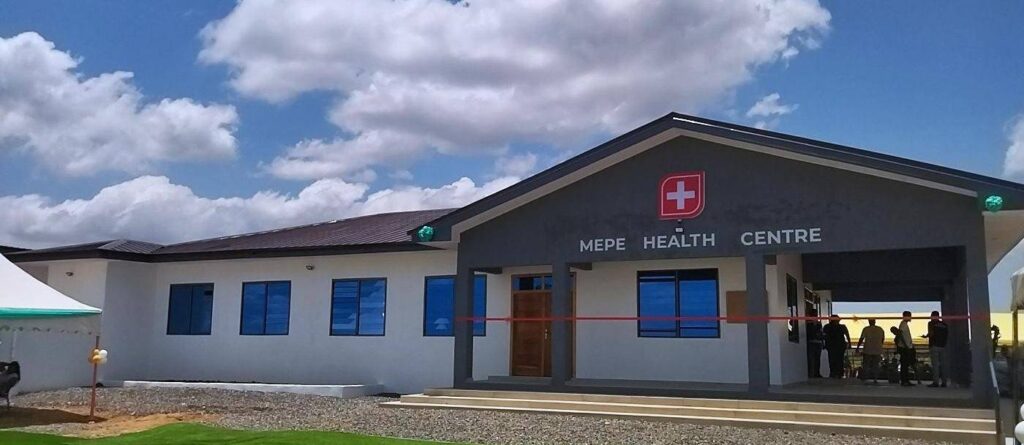Ghana’s health care system has seen significant advancements in recent decades, improving key health indicators such as infant mortality rates and life expectancy. Despite these improvements, the system continues to grapple with numerous challenges that hinder the provision of comprehensive, equitable, and quality health care for all Ghanaians. This feature article explores the current state of Ghana’s health care system, the pressing issues that need attention, and the potential solutions to ensure the health and safety of the population.
At the heart of Ghana’s health care system is a mix of public and private providers, with the government playing a central role through the Ghana Health Service (GHS) and the Ministry of Health. A landmark development was the introduction of the National Health Insurance Scheme (NHIS) in 2003, aimed at making health care more accessible and affordable. The NHIS covers a wide range of services, from primary to tertiary care, reducing financial barriers to health care access for many Ghanaians.
Despite these efforts, there remain significant disparities in health care quality and access, particularly between urban and rural areas. Urban centers like Accra and Kumasi boast better-equipped facilities and more medical personnel, while rural areas often struggle with inadequate resources and infrastructure. This disparity is one of the many pressing issues that need urgent attention.
One of the most critical challenges facing Ghana’s health care system is inadequate infrastructure. Many health facilities, especially in rural areas, lack basic amenities such as running water, electricity, and adequate sanitation. Additionally, there is a persistent shortage of essential medical supplies and equipment, which hampers the ability of health care providers to deliver quality care. Addressing this issue requires increased investment from both the government and the private sector, as well as the implementation of public-private partnerships to enhance resource allocation and facility upgrades.
Another significant challenge is the shortage of health care professionals. Ghana faces a severe deficit of doctors, nurses, and specialists, a problem exacerbated by the migration of health workers to more developed countries in search of better opportunities—a phenomenon known as “brain drain.” Incentivizing health care professionals to work in underserved areas through financial incentives, housing, and career development opportunities can help mitigate this issue. Additionally, strengthening medical education and training programs to increase the number of locally trained professionals and improving working conditions and salaries are essential steps to retaining health workers.
The financial sustainability of the NHIS is also a pressing concern. While the scheme has increased access to health care, it is plagued by issues such as delayed reimbursements to health facilities, which often result in financial strain and compromised care quality. Reforming the NHIS to improve efficiency and financial sustainability, possibly through increased premiums or government subsidies, is crucial. Ensuring timely reimbursement processes to health facilities and exploring alternative funding mechanisms, such as donor partnerships and international aid, can also help address this issue.
Disparities in the quality of health care services between urban and rural areas remain stark. Rural areas often lack specialized services and advanced medical care, leading to delayed diagnosis and treatment. Expanding telemedicine and mobile health initiatives can help bridge the gap between rural and urban health care services. Establishing more regional and district hospitals with specialized services and enhancing the training of rural health workers to provide a broader range of services are also essential steps.
Maternal and child health is another area requiring urgent attention. Despite improvements, high rates of maternal mortality and under-five mortality persist, often due to inadequate prenatal and postnatal care. Strengthening maternal and child health programs, focusing on prenatal care, skilled birth attendance, and postnatal follow-up, is crucial. Increasing community outreach and education programs to promote maternal and child health and ensuring the availability of emergency obstetric care in all regions can significantly improve outcomes.
Ghana continues to battle both communicable diseases, such as malaria and tuberculosis, and non-communicable diseases, such as hypertension and diabetes. The dual burden of disease strains the health care system and requires a multifaceted approach. Enhancing disease prevention and control programs, including vaccination campaigns and public health education, is vital. Strengthening primary health care systems to manage chronic diseases effectively and increasing funding for research and development to address emerging health threats are also essential measures.
The health and safety of Ghanaians depend on a robust, equitable, and well-functioning health care system. Addressing the challenges of inadequate infrastructure, shortage of health care professionals, funding issues, and disparities in care quality requires concerted efforts from the government, private sector, and international partners. By implementing targeted solutions and fostering a collaborative approach, Ghana can build a health care system that meets the needs of all its citizens, ensuring a healthier and more prosperous future.

